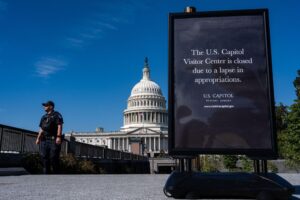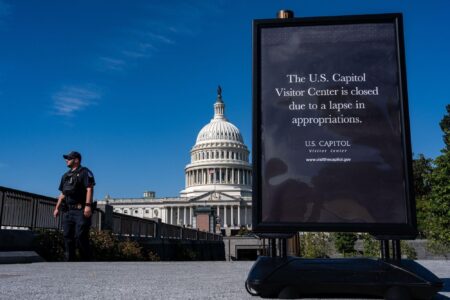Cal Thomas Reflects on Trump Administration Policies and Their Enduring Influence on American Politics
In-Depth Review of Trump-Era Policies by Cal Thomas
Political analyst Cal Thomas recently provided a comprehensive evaluation of pivotal policies implemented during President Donald Trump’s tenure, emphasizing their sustained effects on both domestic governance and international relations. Thomas scrutinized the administration’s stringent immigration protocols, noting how enhanced border security and visa policy reforms reshaped labor markets and diplomatic ties. Additionally, he dissected the Tax Cuts and Jobs Act, exploring its dual impact on stimulating economic activity while exacerbating income disparities, offering a balanced view of the beneficiaries of these fiscal changes.
Thomas also delved into trade policy transformations, particularly the transition from NAFTA to the United States-Mexico-Canada Agreement (USMCA). He highlighted the administration’s intent to safeguard American manufacturing sectors, while acknowledging the ensuing debates over protectionism versus globalization. The following table encapsulates the primary objectives and outcomes of these hallmark policies:
| Policy Initiative | Main Goal | Resulting Impact |
|---|---|---|
| Immigration Policy Enforcement | Enhance Border Security | Decline in unauthorized border crossings; rise in deportations |
| Tax Cuts and Jobs Act | Stimulate Economic Growth | Temporary GDP increase; widened economic inequality |
| USMCA Trade Agreement | Revise and Modernize NAFTA | Strengthened automotive industry standards; persistent trade disputes |
Understanding the Shifts in U.S. Political Dynamics Through Cal Thomas’s Lens
Cal Thomas presents a layered interpretation of the Trump administration’s policy framework, emphasizing the intricate relationship between political maneuvering and public reaction. He identifies deregulation and economic nationalism as central themes that have redefined Republican Party priorities and ignited vigorous discussions about America’s global commitments and alliances.
Thomas points out that the current political environment is marked by intense polarization, fueled in part by social media platforms that accelerate the spread of misinformation and deepen divisions. His key observations include:
- Role of social media: Amplifying political divides and misinformation dissemination.
- Judicial nominations: Establishing enduring conservative influence within the federal courts.
- Immigration policies: Influencing voter demographics and party strategies.
| Policy Domain | Trump Administration Strategy | Wider Consequences |
|---|---|---|
| Economic Policy | Tax reform and deregulation | Short-term economic growth with increased market fluctuations |
| Foreign Policy | ‚ÄúAmerica First‚ÄĚ approach | Shifted alliances and heightened trade frictions |
| Judiciary | Conservative judicial appointments | Long-term impact on legal rulings and interpretations |
Assessing the Outcomes and Public Perception of Trump’s Policy Agenda
The Trump administration’s policy decisions ignited vigorous debate across the nation and abroad, reflecting a period of pronounced societal division. Initiatives such as tax reform, deregulation, and immigration enforcement were championed by proponents as essential for economic revitalization and national security. Conversely, detractors criticized these policies for deepening social inequities and straining international partnerships. The administration’s tariff policies, aimed at protecting domestic industries, received mixed reviews, with some applauding the protectionist stance and others cautioning about potential adverse economic consequences.
Public opinion during this era was notably fragmented, often aligning with partisan and regional lines. Polling data consistently revealed approval ratings hovering below the majority mark. The table below summarizes key public approval statistics and prevalent criticisms:
| Policy Focus | Approval Rating (%) | Common Critiques |
|---|---|---|
| Tax Reform | 45 | Perceived to disproportionately favor large corporations |
| Immigration Enforcement | 40 | Concerns over humanitarian and legal implications |
| Trade Tariffs | 38 | Risk of escalating trade conflicts and job displacement |
| Environmental Deregulation | 36 | Heightened worries about climate change effects |
- Advocates highlighted economic resurgence and national sovereignty.
- Critics emphasized social equity and environmental sustainability.
- Neutral observers noted the challenges posed by polarized discourse on democratic governance.
Recommendations for Enhancing Future Political Leadership and Governance
Looking forward, political leaders must prioritize transparency and accountability to rebuild public confidence. Encouraging bipartisan dialogue and inclusive policymaking will be vital to address the diverse needs of the electorate. Strengthening institutional integrity and upholding democratic principles are essential to effectively manage the complexities of a divided political landscape.
Strategic actions proposed include:
- Establishing stringent ethics oversight frameworks
- Expanding civic education initiatives to empower informed voting
- Fostering cross-party collaboration on critical issues such as healthcare and infrastructure development
- Utilizing digital tools to enhance government transparency
- Combating misinformation through evidence-based communication campaigns
| Area of Focus | Recommended Actions | Anticipated Benefits |
|---|---|---|
| Governance | Reinforce ethics regulations and monitoring | Enhanced accountability and public trust |
| Partisan Relations | Promote bipartisan task forces | Greater policy consistency and cooperation |
| Civic Participation | Broaden voter education programs | More informed electorate and increased voter turnout |
Final Thoughts
In conclusion, Cal Thomas’s reflections on the Trump administration provide a thoughtful and multifaceted understanding of the policies that have shaped contemporary American politics. His insights, as shared during the C-SPAN interview, illuminate the ongoing divisions and challenges within the political arena. As the nation moves forward, Thomas’s analysis serves as a valuable framework for interpreting the evolving political environment and the opportunities for constructive leadership ahead.







